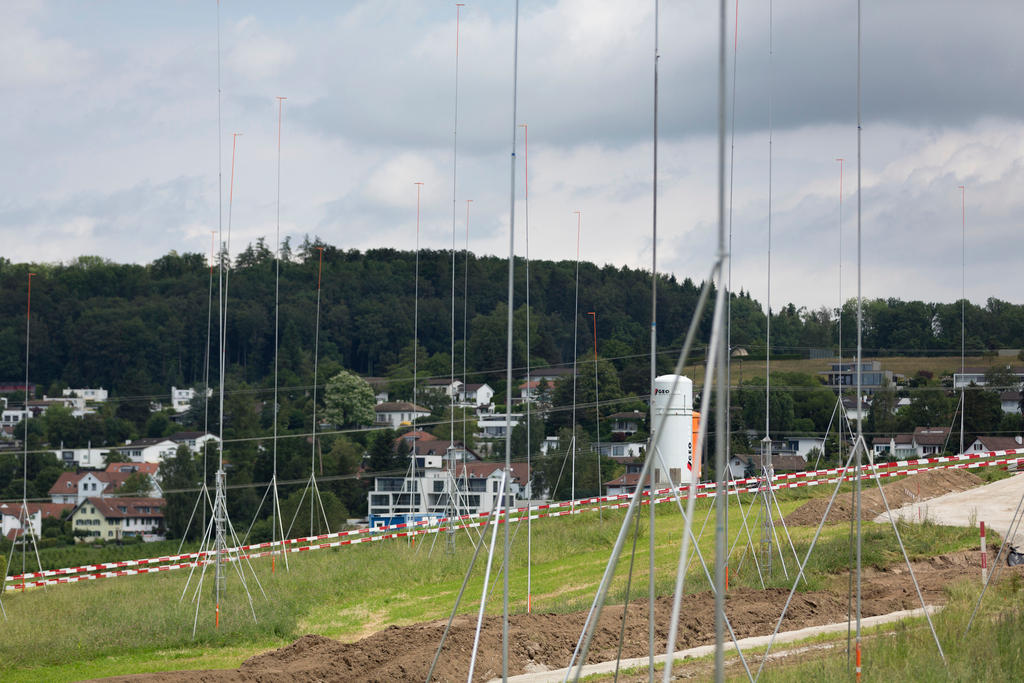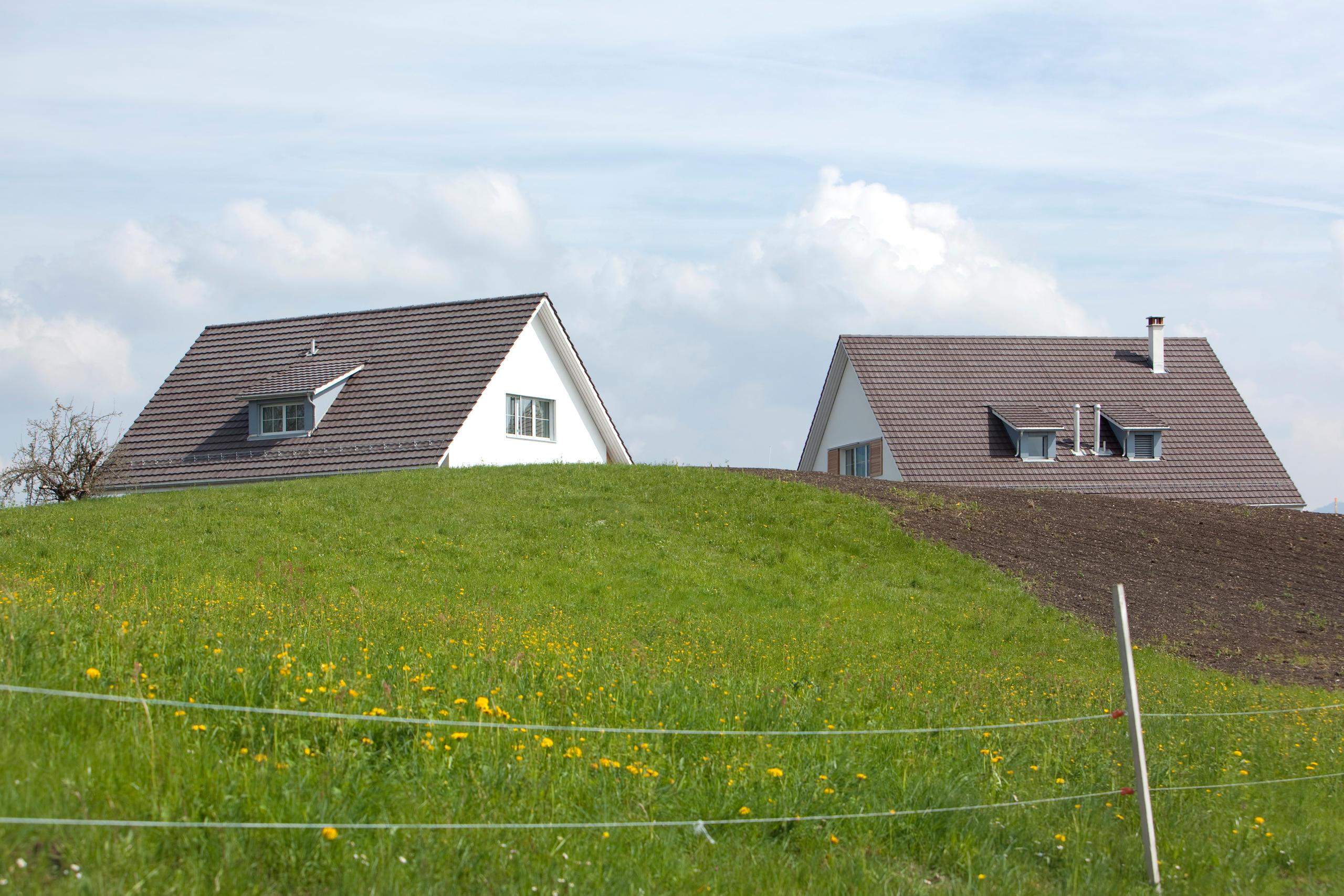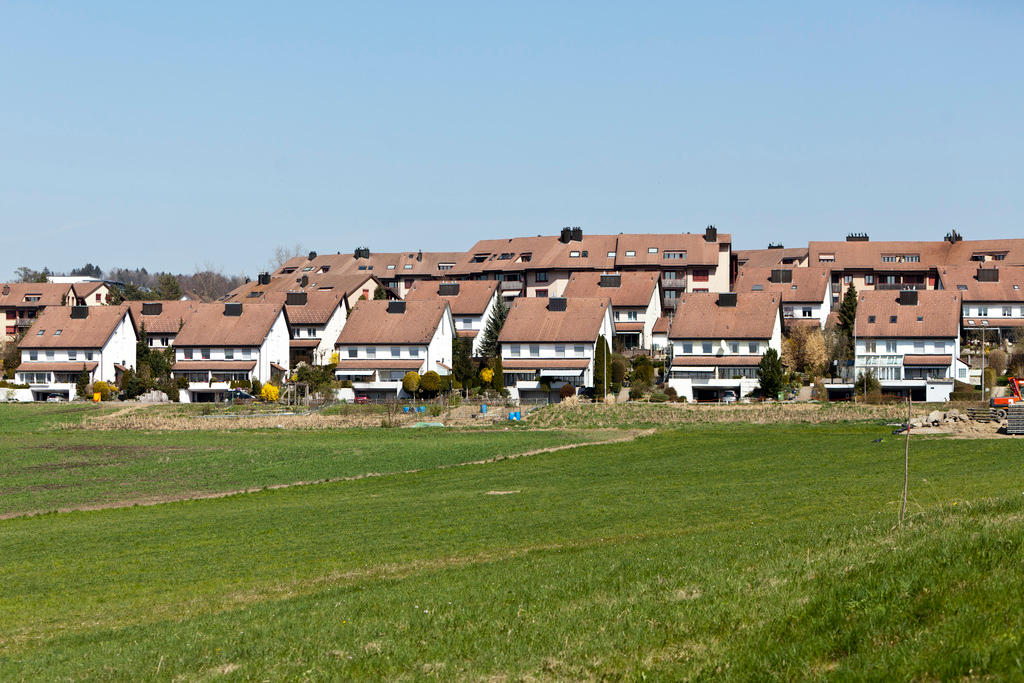‘Initiative against urban sprawl is unnecessary and harmful’
The Green Party's initiative to curb urban sprawl is too radical and risks blocking further development in Switzerland, argues Hans-Ulrich Bigler.
The national parliamentarian from the centre-right Radical-Liberal party is also a leading member of the Zurich chapter of the organisation representing house owners.
The initiative against urban sprawl proposed by the youth section of the Green party demands nothing less than the freezing of current construction zones. This radical requirement has not had any support in parliament. Even the leftwing Social Democratic Party did not succeed in uniting behind it. The centrist Liberal Greens do not agree with it either. The “no” is so clear that one can even refer to it as a slap for the initiators.

The initiative is superfluous, unnecessary and even harmful. It allows the creation of new building zones only if an area of at least equivalent size and comparable potential agricultural yield value has been compensated from a construction zone.
Such a requirement paralyses Switzerland’s development. The freezing of building zones without any time limit does not take into account the needs of the population and the economy, nor the special needs of the cantons and regions. On the contrary, it prevents harmonious development.
Bad timing
The revision of the Land Use Planning Act approved by the people did not enter into force until May 1, 2014. The cantons are working on its implementation. Some have already done so, others are in the process of doing so. In addition to adapting their master plans, they must review the provisions relating to the capital gains tax and the availability of building land.
A new modification of the building zones makes no sense. First, it is necessary to wait for the conclusions that can be drawn from the revision of the Land Use Planning Act. In addition, the government is already preparing another revision focusing on buildings outside the building zone. The urban sprawl initiative would thwart the ongoing process.

More
‘Let’s preserve the landscape we’ve inherited’
The anti-urban sprawl initiative is unfair. It penalizes cantons that have used the land sparingly in the past and have not accumulated building zone reserves.
The initiative is not the right instrument to fight urban sprawl because it does not take into account cantonal and regional differences. It puts all regions on the same footing.
Encourages urban sprawl and rising prices
The freezing of building areas increases the risk of construction activity shifting to zones outside urban areas. This is equivalent to encouraging urban sprawl. The initiators thus provoke the exact opposite of what they claim they want to achieve with their project. In some regions, freezing building zones would lead to a severe shortage of land for construction.
As a result, the price of these lands would increase as will all residential and commercial real estate. Access to home ownership would become even less affordable for a large part of the population. This is neither in the interest of the people nor in the interest of small and medium-sized enterprises. The initiative against urban sprawl is therefore also antisocial.
Protecting agricultural land
Population growth has increased the people’s awareness of declining agricultural land. Almost no one today is opposed to its protection.
But this must be done in a reasonable way and within the framework of the ongoing revisions of the Land Use Planning Act.
The initiative against urban sprawl, on the other hand, is far too radical.
With it, it will be impossible to meet the demands of a growing Swiss population with existing land reserves and by increasing the density of buildings. It also requires downgrading of existing building zones as compensation.
Litigation with the owners will be difficult. That is why the vast majority of parties and organisations say no to the senseless demands of the anti-urban sprawl initiative.
Threat to agriculture and mountain regions
The initiative will lead to collateral damage to the agriculture sector, which does not deserve to be suffocated. In 2017, almost 80% of the population approved an initiative on food security. This constitutional mandate must be implemented. Swiss farmers must be able to produce as much as possible.
However, unless in the public interest, buildings in agricultural zones that are not directly linked to agriculture would no longer be authorised.
The initiative represents a step back from the current situation. Development of farms would no longer be possible. Buildings and facilities for agriculture would in principle be returned to the building zones. It would no longer be possible to produce eggs, poultry or renewable energy.
These restrictions would also make it difficult to carry out projects such as the construction of mountain restaurants in tourist areas. Farmers would have to turn to land in the construction zone that is much more expensive, which in turn would increase prices. More generally, the limits set for agriculture would make Switzerland even more dependent on imports.
The consequences of the anti-urban sprawl initiative far exceed its objectives. There are enough rules in Switzerland to ensure a balanced use of building and agricultural land. That is why, and particularly from the point of view of mountain regions, the extreme demands of the proponents of the initiative must be rejected.
The views expressed in this article are solely those of the authors, and do not necessarily reflect the views of swissinfo.ch.
swissinfo.ch publishes op-ed articles by contributors writing on a wide range of topics – Swiss issues or those that impact Switzerland. The selection of articles presents a diversity of opinions designed to enrich the debate on the issues discussed.

In compliance with the JTI standards
More: SWI swissinfo.ch certified by the Journalism Trust Initiative











You can find an overview of ongoing debates with our journalists here . Please join us!
If you want to start a conversation about a topic raised in this article or want to report factual errors, email us at english@swissinfo.ch.